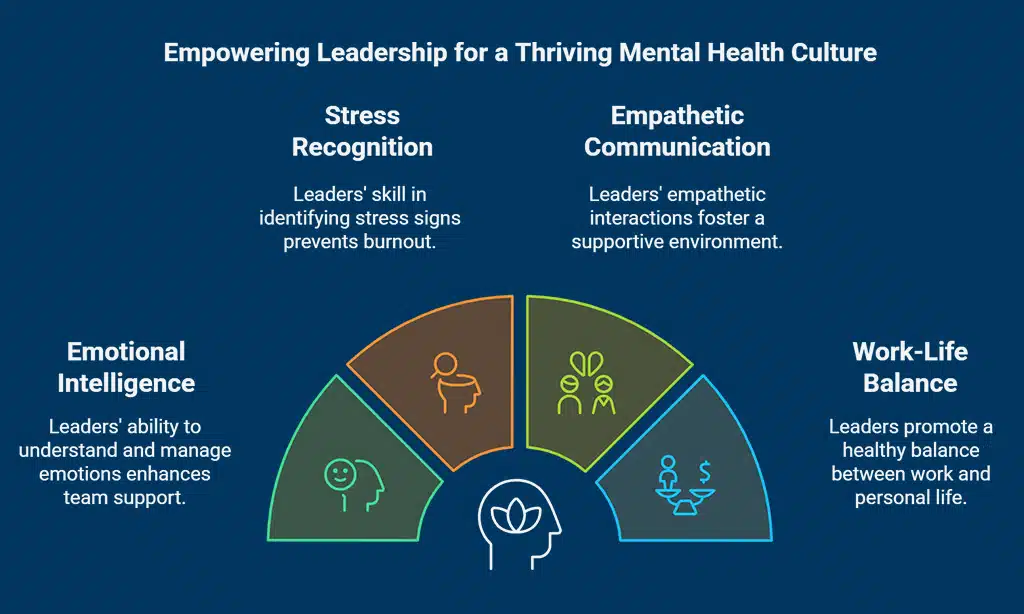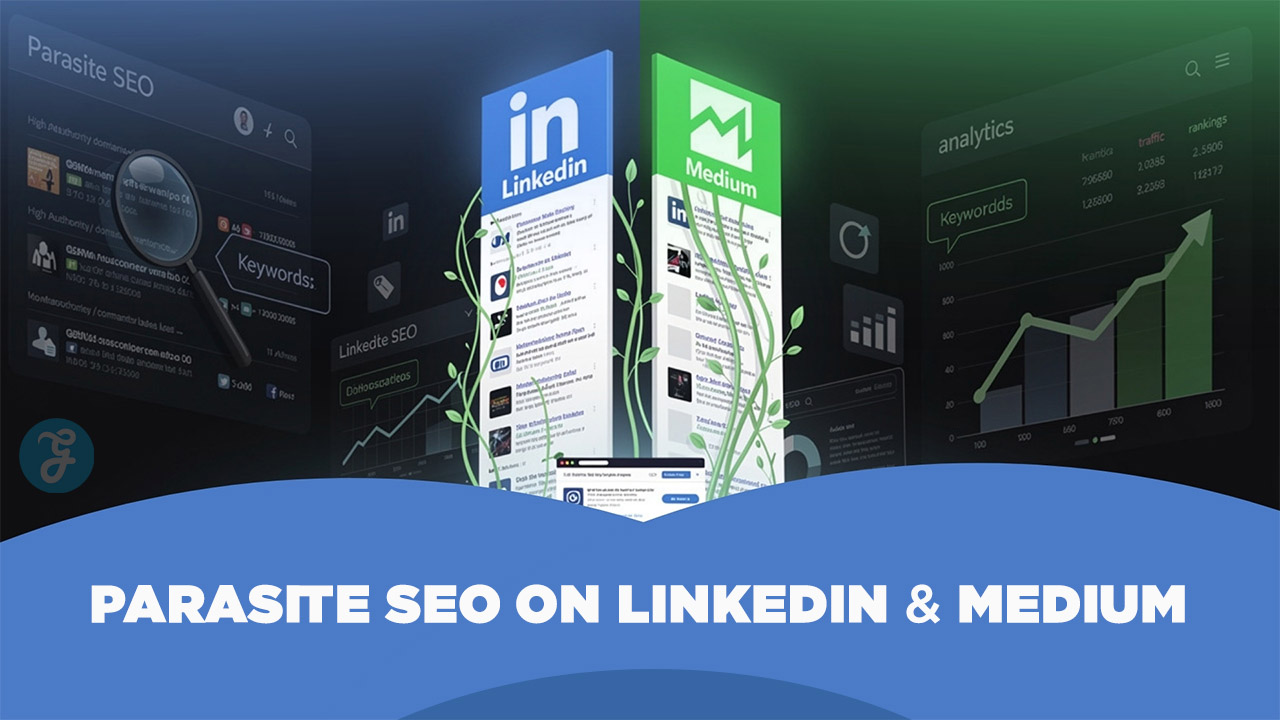The mental well-being of employees has become a major priority for modern organizations. A mentally healthy workplace culture isn’t just about preventing mental illness but actively promoting psychological safety, well-being, and work-life balance.
As mental health awareness grows, organizations are understanding that a mentally healthy workplace culture can lead to stronger employee engagement, lower absenteeism, and enhanced overall productivity.
This article delves into 10 benefits of a mentally healthy workplace culture, exploring the far-reaching impact it has on organizations, employees, and productivity. It also provides practical insights into how companies can foster such a culture and why it’s so crucial to long-term business success.
What is a Mentally Healthy Workplace Culture?
A mentally healthy workplace culture refers to an environment where mental well-being is actively supported. It’s a place where employees feel safe, valued, and respected. It encourages open dialogue about mental health, reduces stigma, and provides resources like counseling, mental health days, and flexible working arrangements.
A mentally healthy workplace culture isn’t just about mitigating risks; it proactively seeks to create an atmosphere that supports employees in being their best selves at work.
By fostering a mentally healthy workplace, businesses help employees reduce stress, improve emotional well-being, and ultimately feel more engaged and productive in their work. The company culture shifts toward inclusivity, empathy, and psychological safety, which benefits employees at every level of the organization.
Why Mental Health Matters in the Workplace?
Mental health is not just a personal issue; it directly influences workplace dynamics, productivity, and the bottom line. According to the World Health Organization (WHO), depression and anxiety alone cost the global economy approximately $1 trillion in lost productivity each year.
Employees who experience mental health challenges like stress or burnout are more likely to miss work, experience low engagement, and produce subpar results.
In contrast, organizations that emphasize mental wellness have employees who are more engaged, efficient, and innovative. A mentally healthy workplace fosters job satisfaction, retention, and overall well-being—leading to increased employee productivity and a positive company culture.
The Impact of Mental Health on Employee Productivity
The link between mental health and productivity is undeniable. Research conducted by Mind Share Partners found that 76% of employees reported experiencing at least one mental health challenge, but only 38% felt comfortable talking about it at work.
This gap indicates a need for organizations to take proactive steps to create an environment where mental health is openly discussed and supported.
Mentally healthy employees are better able to focus on tasks, manage their time effectively, and contribute to a positive work environment. When employees have access to mental health resources, flexible working arrangements, and supportive leadership, they are more likely to be engaged, motivated, and productive.
10 Key Benefits of a Mentally Healthy Workplace Culture
In this section, we explore the 10 benefits of a mentally healthy workplace culture, showcasing how each one can transform your organization. The following benefits are supported by data, case studies, and actionable tips for implementation.
1. Enhanced Employee Well-Being
A mentally healthy workplace directly contributes to an employee’s overall well-being, improving both their physical and emotional health. Prioritizing mental health in the workplace leads to a reduction in stress and anxiety, creating a more balanced and fulfilling work environment.
Reducing Stress and Anxiety in the Workplace
By promoting mental wellness, companies can reduce workplace stress and prevent burnout. Providing resources like counseling, meditation sessions, and stress-relief techniques can significantly benefit employees’ mental health.
Promoting Physical and Mental Health Balance
A holistic approach to well-being encourages employees to engage in activities that promote both physical and mental health. For example, companies may offer gym memberships or organize outdoor team-building events that combine physical activity with mental relaxation.
| Strategy | Benefits |
| Stress management programs | Reduce anxiety and stress among employees |
| Mental health days | Allow employees to recharge and prevent burnout |
| Wellness initiatives (e.g., yoga) | Support overall physical and mental wellness |
2. Improved Employee Engagement and Retention
Employees who feel mentally supported are more likely to be engaged, loyal, and committed to their work. They are also more likely to stay with the company long-term, reducing turnover and retaining valuable talent.
Creating a Supportive Environment for Career Growth
A culture that supports mental health creates an environment where employees feel safe to pursue career growth. Encouraging conversations about mental well-being helps employees feel valued, which increases their loyalty to the organization.
Fostering Employee Loyalty and Satisfaction
Employees who experience mental health challenges are more likely to leave workplaces where they feel unsupported. By fostering a mentally healthy culture, businesses reduce turnover and attract top talent. Companies like Google and Salesforce have pioneered employee-focused mental health initiatives, leading to higher retention rates and stronger engagement.
| Initiative | Impact |
| Access to counseling services | Increased job satisfaction and employee retention |
| Flexible working hours | Better work-life balance and employee engagement |
| Employee support networks | Improved mental health support and loyalty |
3. Increased Productivity and Performance
A mentally healthy workplace helps employees perform at their best. When employees feel mentally well, they are more focused, energized, and motivated to deliver their best work.
How Mental Health Affects Focus and Efficiency
Employees with good mental health are better equipped to handle workload demands, meet deadlines, and contribute to projects efficiently. A mentally healthy culture also nurtures creativity and innovation, making employees more likely to take initiative.
Leveraging Mental Health for Better Results
By addressing mental health proactively, businesses can help employees maintain high energy levels, be more engaged in their work, and reduce distractions caused by mental health issues like anxiety and stress.
| Practice | Result |
| Mental health awareness training | Increased focus and performance |
| Recognition programs | Enhanced motivation and commitment |
| Positive work culture | Reduced distractions and enhanced productivity |
4. Stronger Team Collaboration and Communication
A culture of mental wellness fosters stronger interpersonal relationships, which leads to better teamwork and collaboration.
Creating an Open and Inclusive Communication Culture
In a mentally healthy workplace, communication is transparent, inclusive, and respectful. Employees feel encouraged to express their thoughts without fear of judgment, leading to more effective collaboration and decision-making.
Mental Health as a Catalyst for Stronger Teams
When employees feel supported, they’re more likely to engage with their teams and contribute to collaborative projects. This creates an environment where teams can work together more efficiently, tackle challenges, and innovate as a unit.
| Strategy | Impact |
| Open communication policies | Foster trust and collaboration |
| Team-building activities | Strengthen team bonds and improve teamwork |
| Mental health training for leaders | Encourage empathy and understanding within teams |
5. Reduced Absenteeism and Presenteeism
Mental health issues are a leading cause of absenteeism and presenteeism (when employees show up to work but are disengaged or unproductive). A mentally healthy workplace reduces both.
The Connection Between Mental Health and Attendance
By offering resources such as mental health days and flexible schedules, organizations can allow employees to recover from mental health issues before they lead to prolonged absences.
How a Mentally Healthy Culture Improves Work-Life Balance
Employees are more likely to stay healthy and present when they can balance work with personal life. Offering flexible work hours, remote work options, and the ability to take mental health days supports employees in managing their health proactively.
| Strategy | Impact |
| Flexible scheduling | Reduced absenteeism and improved well-being |
| Remote work opportunities | Better work-life balance and focus |
| Mental health days | Reduced stress and fewer sick days |
6. Decreased Workplace Conflict
A mentally healthy workplace fosters stronger relationships among employees and reduces interpersonal tensions. By supporting mental health, organizations create an environment where employees are more empathetic, understanding, and less likely to experience or contribute to workplace conflicts.
Promoting Positive Relationships Between Employees
Mental health support encourages positive and respectful communication. Employees are more likely to approach disagreements with an open mind, reducing the potential for conflicts. Offering conflict resolution workshops or team-building exercises can help employees navigate challenging situations effectively.
Mental Health Strategies to Resolve Workplace Disputes
When mental health is a priority, companies can provide structured channels for resolving conflicts, such as mediation services or training in emotional intelligence. This helps prevent issues from escalating and creates a culture of mutual respect and understanding.
| Strategy | Impact |
| Conflict resolution training | Reduces workplace disputes and builds a cohesive environment |
| Mediation services | Helps employees resolve issues before they escalate |
| Team-building exercises | Improves communication and cooperation among team members |
7. Better Leadership and Management
Leaders play a pivotal role in shaping the mental health culture of an organization. Mentally healthy leaders are more emotionally intelligent and better equipped to support their teams. They are able to recognize the signs of stress or burnout, engage in empathetic communication, and encourage a healthy work-life balance.
How Mentally Healthy Leaders Drive Organizational Success
Leaders who prioritize mental health create an environment where employees feel heard, valued, and empowered to succeed. This type of leadership directly influences company performance, as employees are more motivated and productive under supportive management.
The Role of Leaders in Fostering Mental Wellness
By modeling good mental health practices, leaders can set a positive tone for the entire organization. Training leaders to recognize mental health concerns and provide support helps foster a culture where employees feel safe to bring their whole selves to work.
| Initiative | Impact |
| Leadership training on mental health | Increases emotional intelligence and empathy |
| Open-door policies | Encourages transparent conversations and builds trust |
| Regular check-ins with employees | Prevents burnout and promotes a supportive work environment |
8. Boosted Creativity and Innovation
Mental health is critical to cognitive function, and employees with better mental well-being are often more creative and innovative. By reducing stress and supporting mental wellness, companies create an environment where employees are free to think outside the box and contribute fresh ideas.
Mental Clarity Leading to More Creative Solutions
When employees feel mentally healthy, they are more likely to engage in creative thinking and problem-solving. Reducing anxiety and fostering a supportive environment allows employees to approach challenges with an open mind and greater resilience.
A Safe Environment to Encourage Innovation
A mentally healthy workplace creates a sense of psychological safety, where employees feel encouraged to share bold ideas without fear of judgment. This boosts the company’s innovation and ability to stay competitive in the market.
| Practice | Impact |
| Encouraging idea-sharing sessions | Fosters a culture of innovation and creativity |
| Providing mental health resources | Supports cognitive function and problem-solving |
| Offering a flexible work environment | Gives employees the space to innovate without stress |
9. Improved Company Reputation
Organizations that prioritize mental health not only benefit their employees but also build a strong reputation in their industry and community. As mental health becomes an increasingly important issue, companies that invest in employee well-being stand out as ethical employers that care for their teams.
Attracting Top Talent with a Focus on Mental Health
Today’s job seekers are looking for more than just a paycheck; they want to work for companies that care about their well-being. By offering mental health benefits, a supportive work environment, and wellness programs, organizations are more likely to attract top talent who value a healthy work-life balance.
Building a Brand Known for Employee Well-being
A company that is known for supporting mental health attracts not only the best employees but also customers who appreciate ethical business practices. Employees often become advocates for their employers, leading to positive word-of-mouth that boosts the company’s reputation and brand loyalty.
| Initiative | Impact |
| Promoting mental health initiatives | Enhances employer brand and attracts top talent |
| Publicizing mental health policies | Builds a reputation as a supportive and responsible company |
| Offering comprehensive wellness programs | Improves both employee satisfaction and company image |
10. Legal and Compliance Benefits
In many countries, employers are legally required to provide a workplace that supports the mental health and well-being of their employees. Implementing a mentally healthy workplace culture helps organizations comply with mental health-related regulations and avoid legal risks related to discrimination or negligence.
Navigating Mental Health Regulations in the Workplace
By taking proactive steps to address mental health, employers reduce their exposure to potential legal liabilities. Legal frameworks like the Americans with Disabilities Act (ADA) and the Mental Health Parity and Addiction Equity Act (MHPAEA) require organizations to accommodate employees with mental health challenges and ensure equal access to treatment.
The Importance of Mental Health Policies
Creating and enforcing clear mental health policies demonstrates a commitment to employee well-being and reduces legal risks. These policies ensure that all employees are treated fairly and that the company is in compliance with relevant mental health laws.
| Strategy | Impact |
| Implementing mental health policies | Helps comply with regulations and reduces legal risks |
| Providing training on mental health laws | Ensures compliance with legal requirements |
| Offering accommodations for mental health conditions | Ensures fairness and inclusivity |
Wrap Up
The benefits of a mentally healthy workplace culture are wide-ranging and offer tangible advantages for both employees and employers.
From enhancing well-being and improving employee engagement to boosting creativity and building a positive company reputation, investing in mental health initiatives is one of the best decisions an organization can make.
A mentally healthy workplace not only drives business success but also creates an environment where employees feel respected, valued, and supported.
With 10 key benefits, the case for a mentally healthy workplace is stronger than ever. Now is the time to embrace these strategies and create a work environment where mental wellness is a priority for everyone.







































